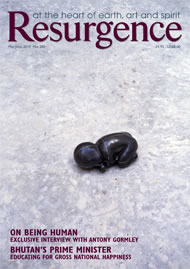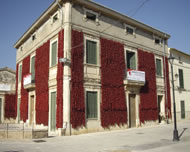Decades ago, Mallorcan society, economy and gastronomy were all intimately linked to a small pepper called the pebre de tap de corti, from which local pimentón, or paprika, was made. After the crop was harvested, the peppers were sent along to the master paprika producers who lived in the Mallorcan mountain villages where, soon after, the streets would become festooned with red chains of peppers drying in the sun. Today, sadly, most of the paprika the island consumes is imported from the Iberian Peninsula, Morocco or Brazil.
However, with the aim of restoring local food sovereignty – almost 90% of food in Mallorca is now imported, despite it being a fertile and verdant Mediterranean island – the Balearic Slow Food group began a project last year to recover the art of paprika-making. The campaign aims to revive the local variety tap de cortí and, in so doing, to avert the disappearance of the artisan production of local paprika, a preservative that is frequently used in the making of cured meats.
The campaign started with the distribution of 16,000 free seedlings to a group of ecological farmers who were working with local gastronomists to bring this variety of pepper back to the marketplace. They adopted traditional production processes, including sun-drying the peppers so they do not lose the natural antioxidants that give paprika its preservative powers. For this, the peppers are hung around house exteriors, to dry slowly in the sun over a few weeks, providing a pungent aroma and unforgettable colour to the villages. After that, they are ground using a stone mill.
Millers once occupied a pivotal place in village life, being the conduit between the farmer and the cook; the artisans, whose job it was to turn raw food into a processed good. The loss of local millers highlights the breakdown that has occurred between agriculture and artisan processing, one of the main causes of the disappearance of hundreds of local food varieties from the Balearic Islands and, simultaneously, of a variety of highly skilled jobs.
Fortunately, the Slow Food movement was aware of such breakdowns in the chain of production, and various groups of people from across the island joined together to rekindle the traditional skills and communal connections. The project also included volunteers from the island’s prison, an NGO working with drug addicts, and people from the village of Santa Maria, where the initiative was located. In the first harvest, 950 strings comprising two tonnes of peppers covered the buildings of Santa Maria – a spectacle that had not been seen for over thirty-five years. The production of locally grown artisan paprika not only provided an income for the farmers and millers involved in the project, but also a unique spice redolent of the intense summer sunshine of this beautiful island.
This small pepper is a common thread in the recovery of gastronomic values, linking good farming practice and artisanal skills, local food and biodiversity, popular culture and landscape, and strengthening the alliance between small farmers and social co-operatives, with the final aim of “bringing back to our landscapes, our markets and our meal tables this valuable food heritage”, as the local organisation’s slogan pledges.








